While living in Japan, you must have received support from kind Japanese people.
To say thank you, you can send them a small gift.
In this article, I will introduce suitable occasions to give gifts to Japanese people, along with the etiquette of giving and receiving gifts in Japanese culture.
Please refer to ensure that the gift is given appropriately and reflects your heartfelt sincerity.”
When do the Japanese give gifts?
Mid-year and year-end
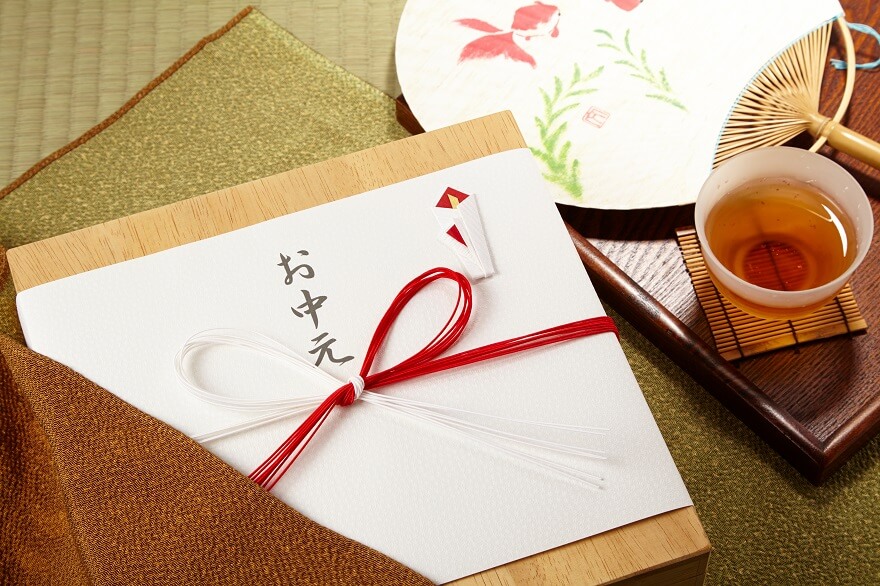
In Japan, there is a custom of giving gifts in the middle of the year and at the end of the year.
Mid-year gifts are called Ochūgen (お中元), year-end gifts are called Oseibo (お歳暮).
Ochūgen is usually given around July ~ August, as a Summer greeting to those you are grateful to.
Oseibo is usually given around the end of November ~ December, as a wish for winter health and also as a way to express gratitude to those who always help you.
After a trip or business trip
In Japan, people often buy souvenirs for colleagues and relatives after returning from a trip or business trip.
These gifts are often traditional crafts or local specialties, most commonly sweets.
Giving souvenirs is an opportunity for people to tell each other interesting things about their trip, and is also a way to show gratitude to colleagues who worked hard during their absence.
After moving into a new house
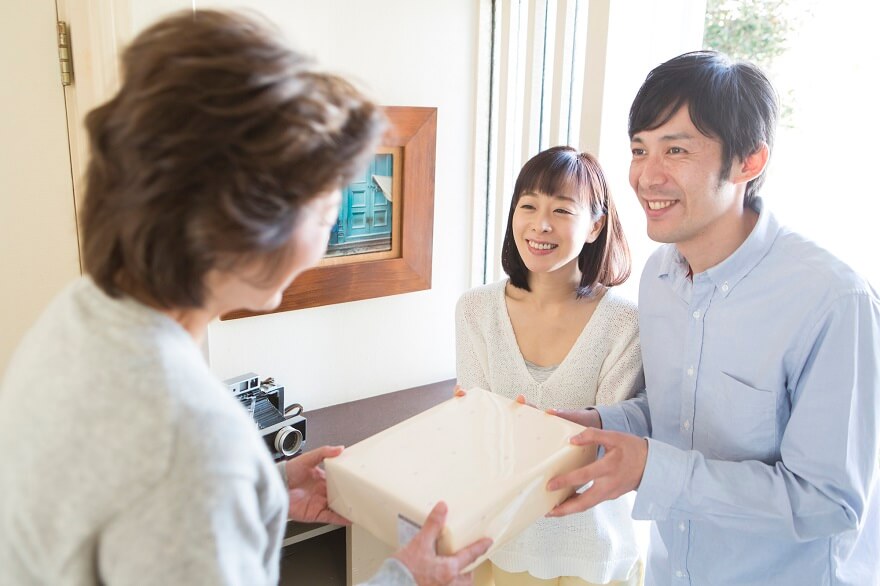
After moving into a new house, Japanese people also have the custom of greeting neighbors and often bring a small gift to show their sincerity.
They think that greeting properly from the beginning will help things go smoother and more convenient later.
When visiting someone else’s home
It has become customary in Japan to bring gifts when visiting other people’s homes.
Even when going to a family member’s house, Japanese people will definitely bring gifts, such as fruit or sweets.
After receiving the gift
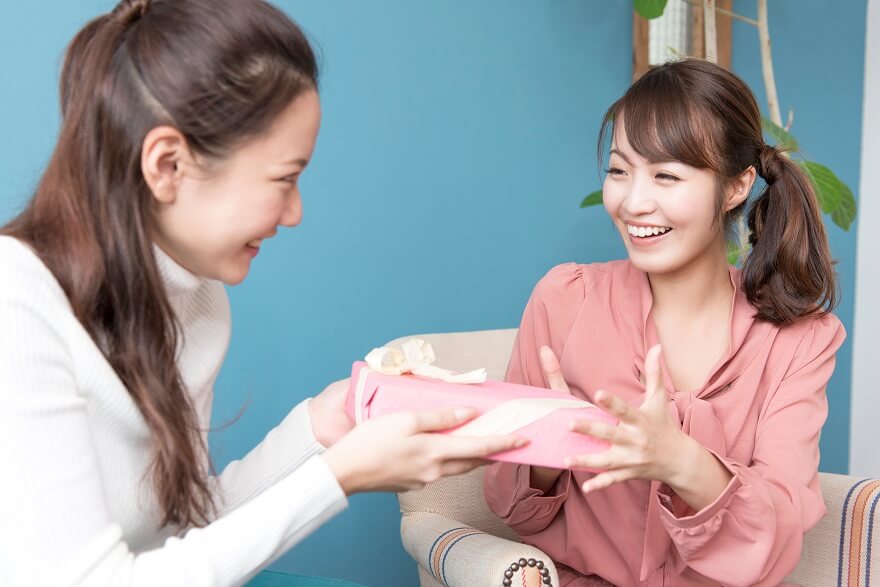
It may sound strange, but Japanese people often give something back to the person who gave them a gift. This action is called “Okaeshi” (お返し) in Japanese.
“Okaeshi” culture should not be understood as “you have received so you have to give back”, but should be seen as a way for Japanese people to show appreciation for each other, to make the relationship even stronger.
If you have ever attended a Japanese wedding, you will definitely receive a gift to take home after the party. This is also the most typical example in Japan of “Okaeshi” culture.
Of course, it doesn’t mean you have to give a gift of equivalent value to what you received. Instead, choose something appropriate, valued at around 1/3 to 1/2 of the received gift, so that the other person feels comfortable receiving it.
Etiquette when giving gifts to Japanese people
In Japan, people pay more attention to the etiquette of gift giving than to the value of the gift.
Below are the main points you need to remember when giving gifts to Japanese people.
Wrap the gift carefully

The biggest characteristic of Japanese gift-giving culture is the meticulousness in gift wrapping.
That doesn’t mean you have to use expensive wrapping paper or elaborate packaging, but simply wrap the gift before giving it. Absolutely do not give gifts unwrapped, as this is considered disrespectful.
Most stores in Japan offer gift wrapping services. Whether it’s a handkerchief or a pair of socks, don’t hesitate to ask the staff to wrap it by saying:「ラッピングお願いします。」(Reading: “Rappingu onegaishimasu”, meaning: “Please help me wrap the gift” ).
If you want to wrap your own gifts, visit 100 yen shops, which are filled with beautiful wrapping paper for you to choose from.
Give gifts with both hands
The ritual of giving gifts with both hands is also an important part of Japanese gift-giving culture.
This shows respect and sincerity to the recipient.
Use appropriate envelopes when giving money
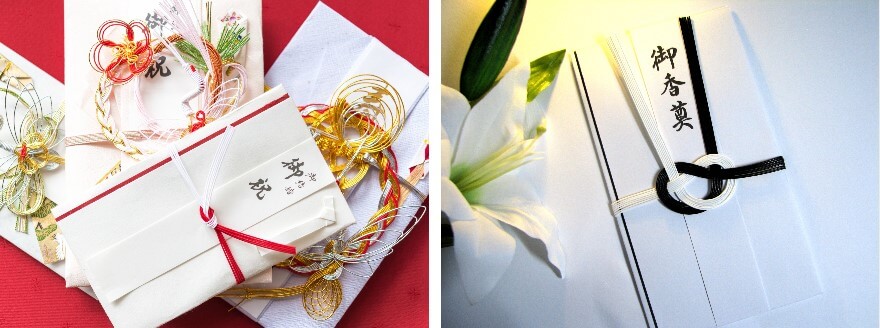
In Japan, people will send congratulatory money when attending a wedding and funeral money when attending a funeral. Depending on the event, they use different money envelopes.
Envelope for wedding celebration money:
Envelopes containing money for weddings (or other happy occasions) in Japanese are called “Shūgi Bukuro” (祝儀袋).
This envelope is often decorated with red, white or yellow strings, looking very cheerful and colorful.
Envelope for funeral condolence money:
Funeral money envelope in Japanese is called “Fushūgi Bukuro” (不祝儀袋).
This envelope is often decorated with white, black or gray strings.
These types of envelopes are available at convenience stores or 100 yen stores so they are easy to find and buy when needed.
Etiquette when receiving gifts from Japanese people
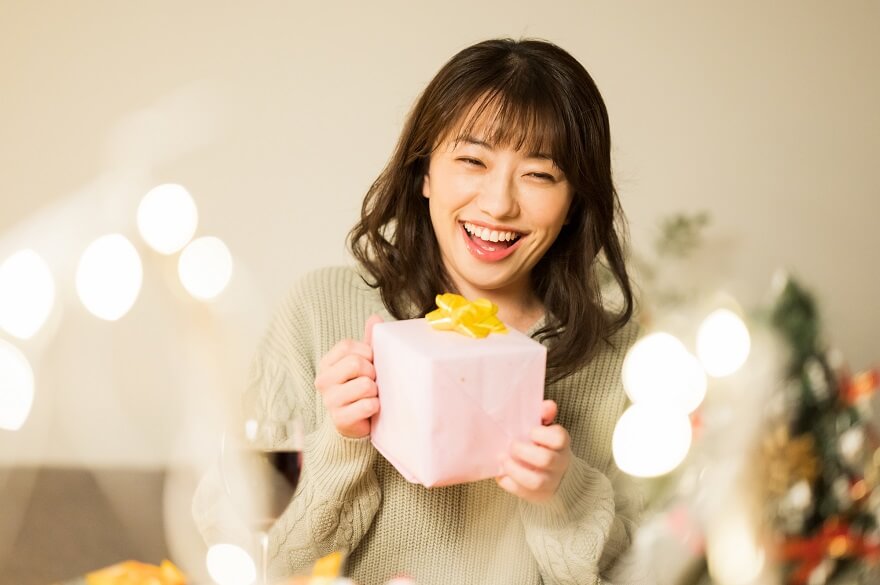
Of course, receiving gifts with both hands and saying thank you is important. Another important thing you need to pay attention to when receiving gifts from Japanese people is the time to open the gift.
Unlike American culture, opening gifts right away is considered insensitive in Japan. However, this depends on the context and perspective of the donor.
Nowadays, many Japanese people say that they will be happier if their partner opens their gift right away and shows their happiness.
To be sure, when receiving a gift from a Japanese person, ask「開けていいですか?」(Reading: “Akete iidesuka?”, meaning: “Can I open the gift now?”). If the giver agrees, you can open the gift right away.
When removing the wrapping paper, gently remove the tape parts instead of tearing the paper.
Conclusion
Besides special occasions such as weddings, birthdays, etc., Japanese people also often give gifts after returning from a trip, when visiting someone’s home, and even after receiving a gift.
In Japan, gift-giving etiquette is more important than the value of the gift. There is no need to use expensive wrapping paper or elaborate wrapping, the important thing is to always wrap the gift before giving it.
If you don’t understand Japanese people, you may find them a bit cumbersome, but it is that thoughtfulness that makes the Japanese people’s admirable gift-giving culture.
There’s only a short time left until the end of the year. Why don’t you take advantage of this opportunity to give Oseibo gifts to the Japanese people who have always supported you in life?

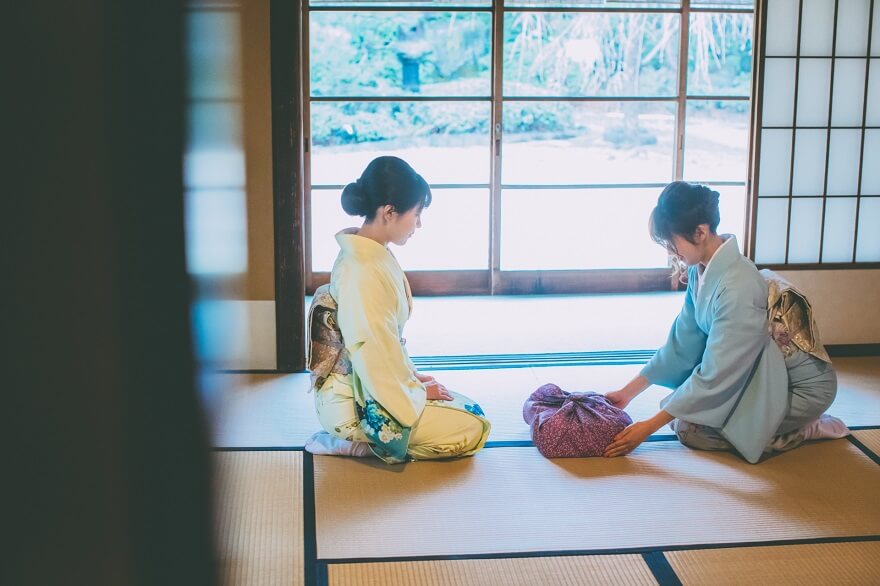
Comment